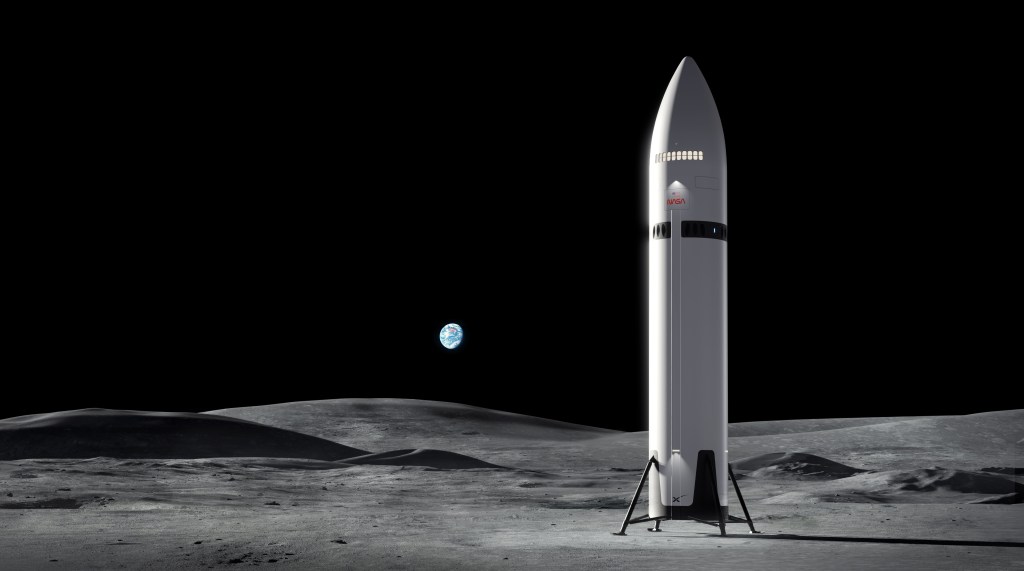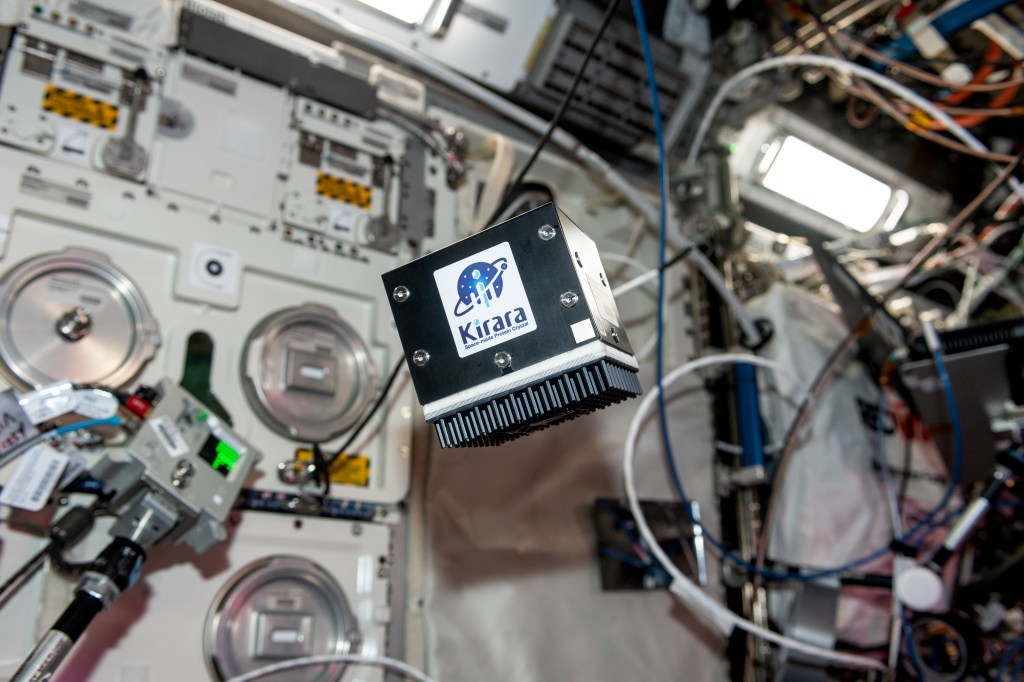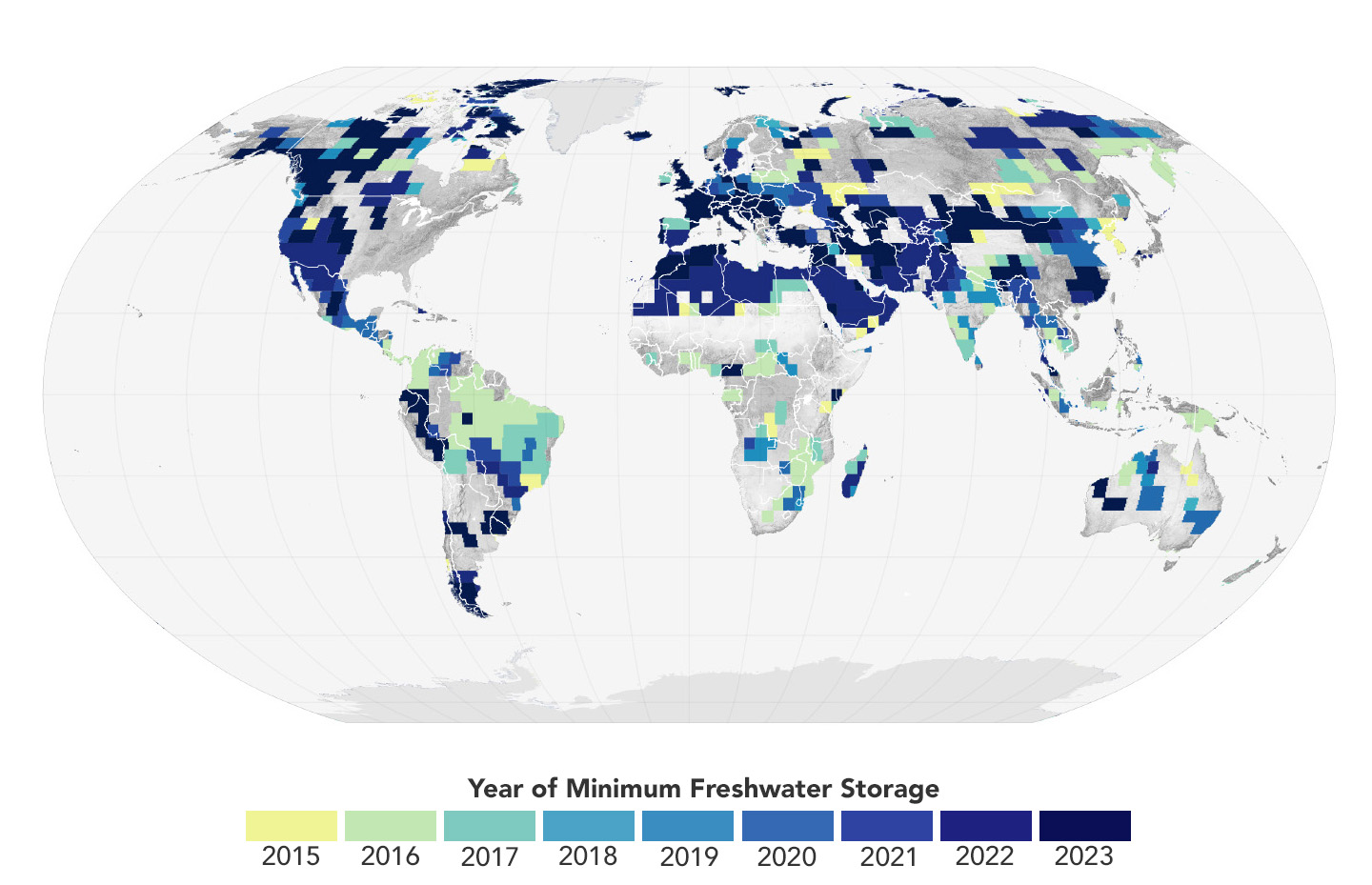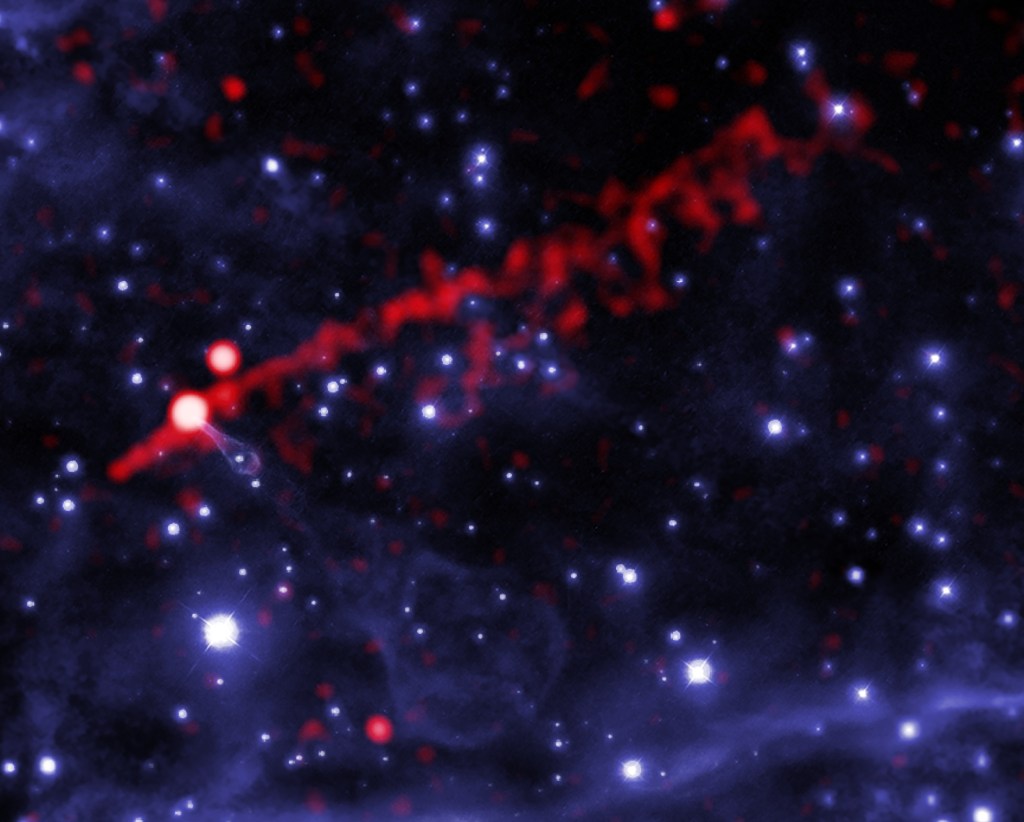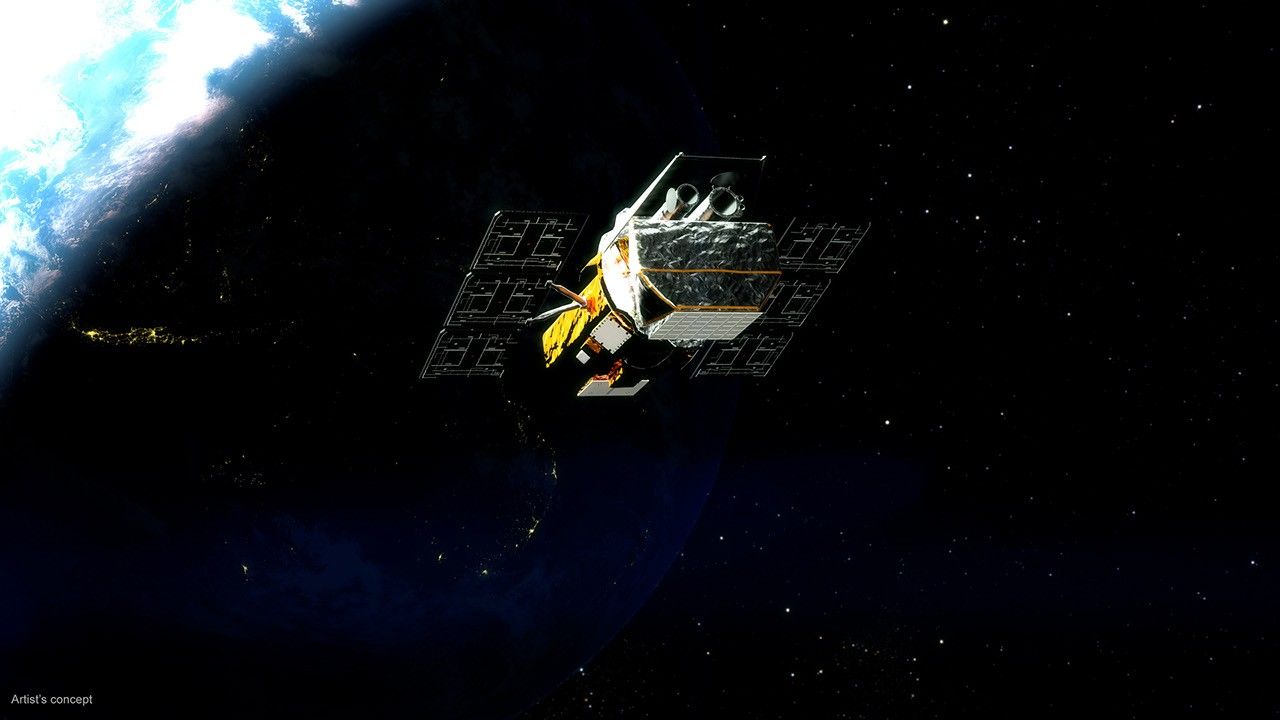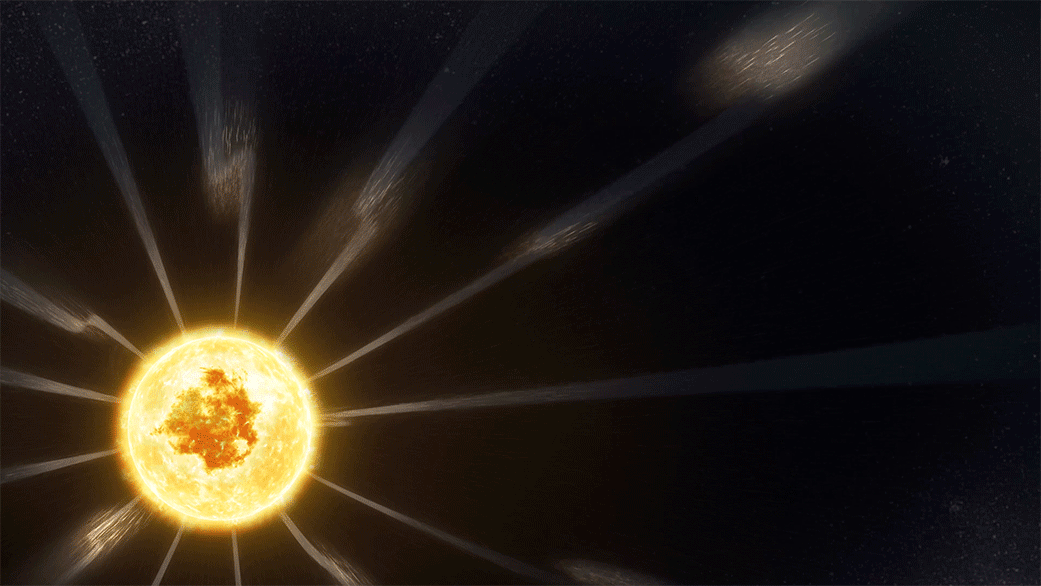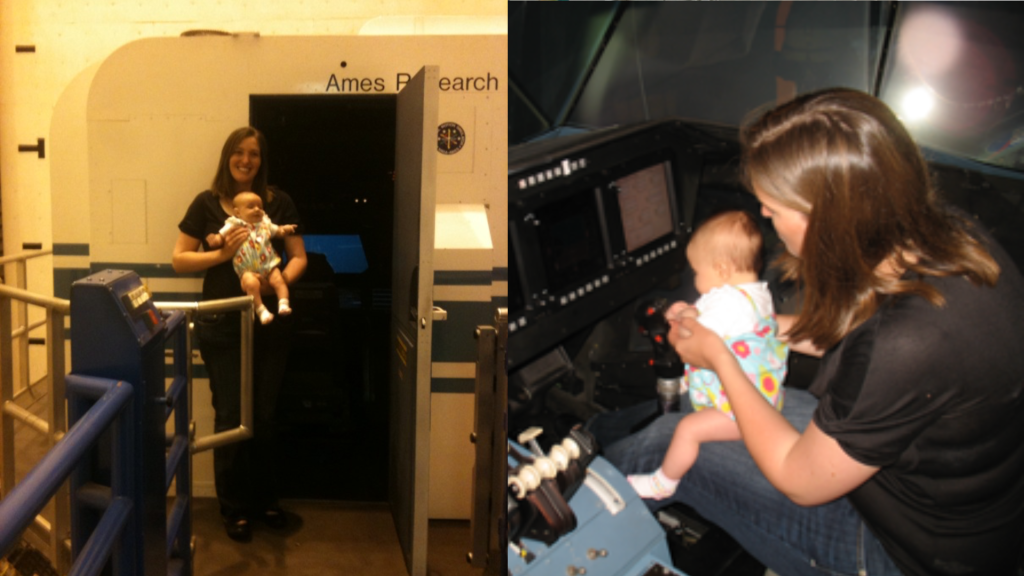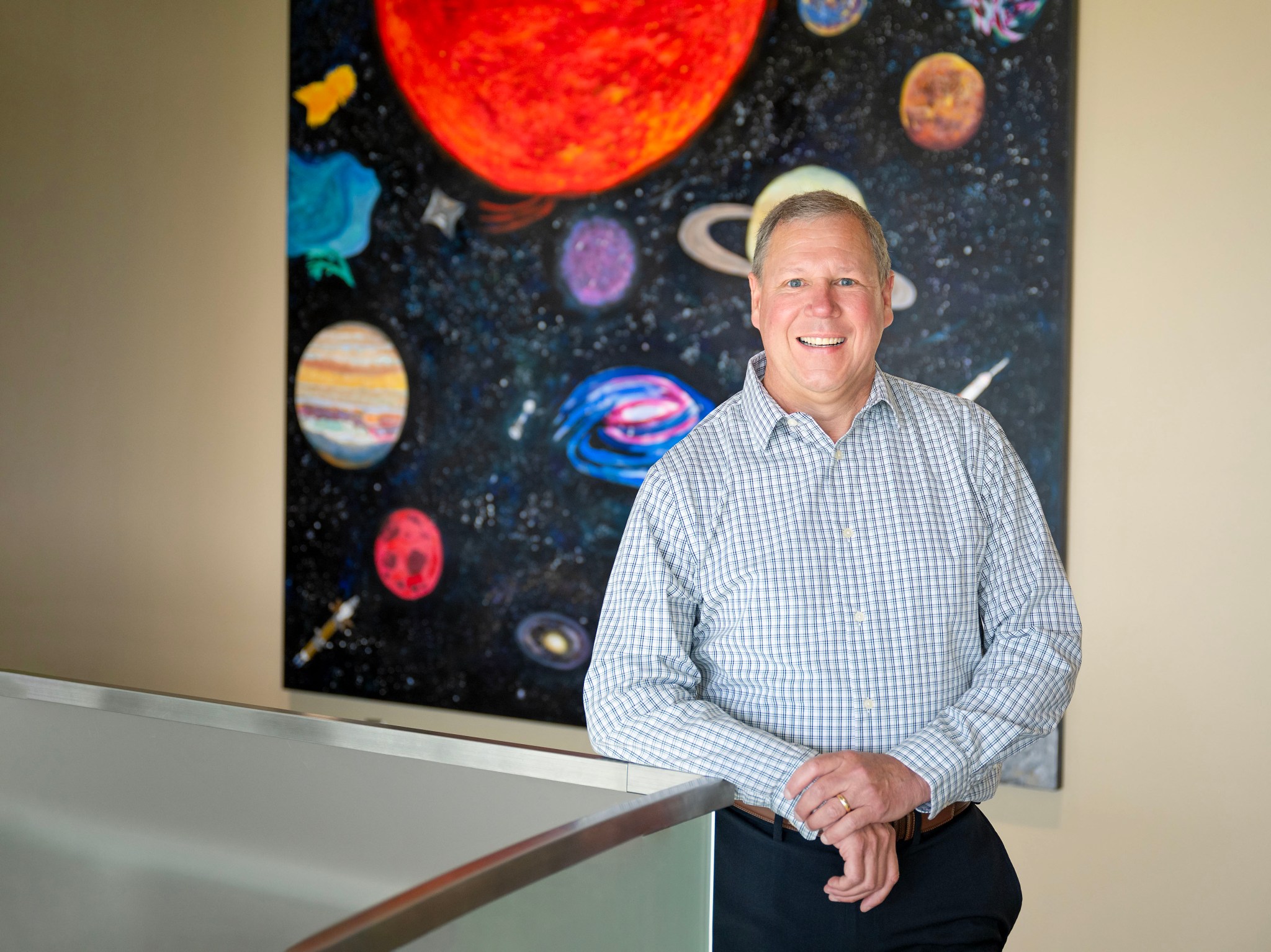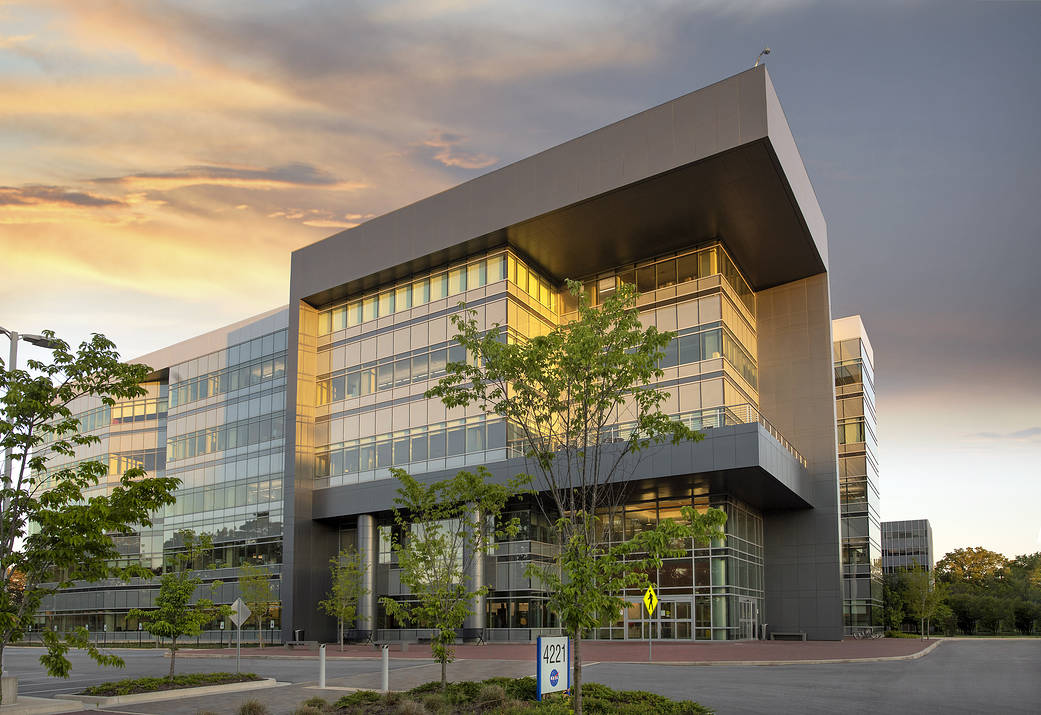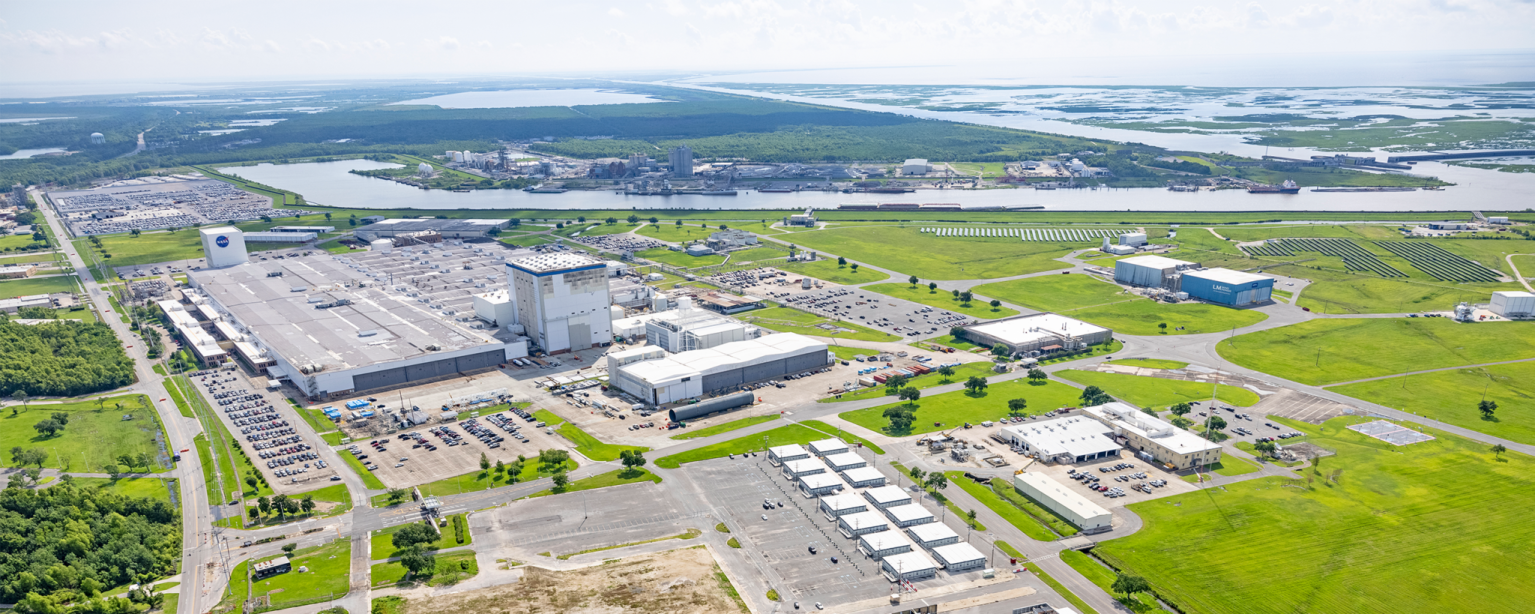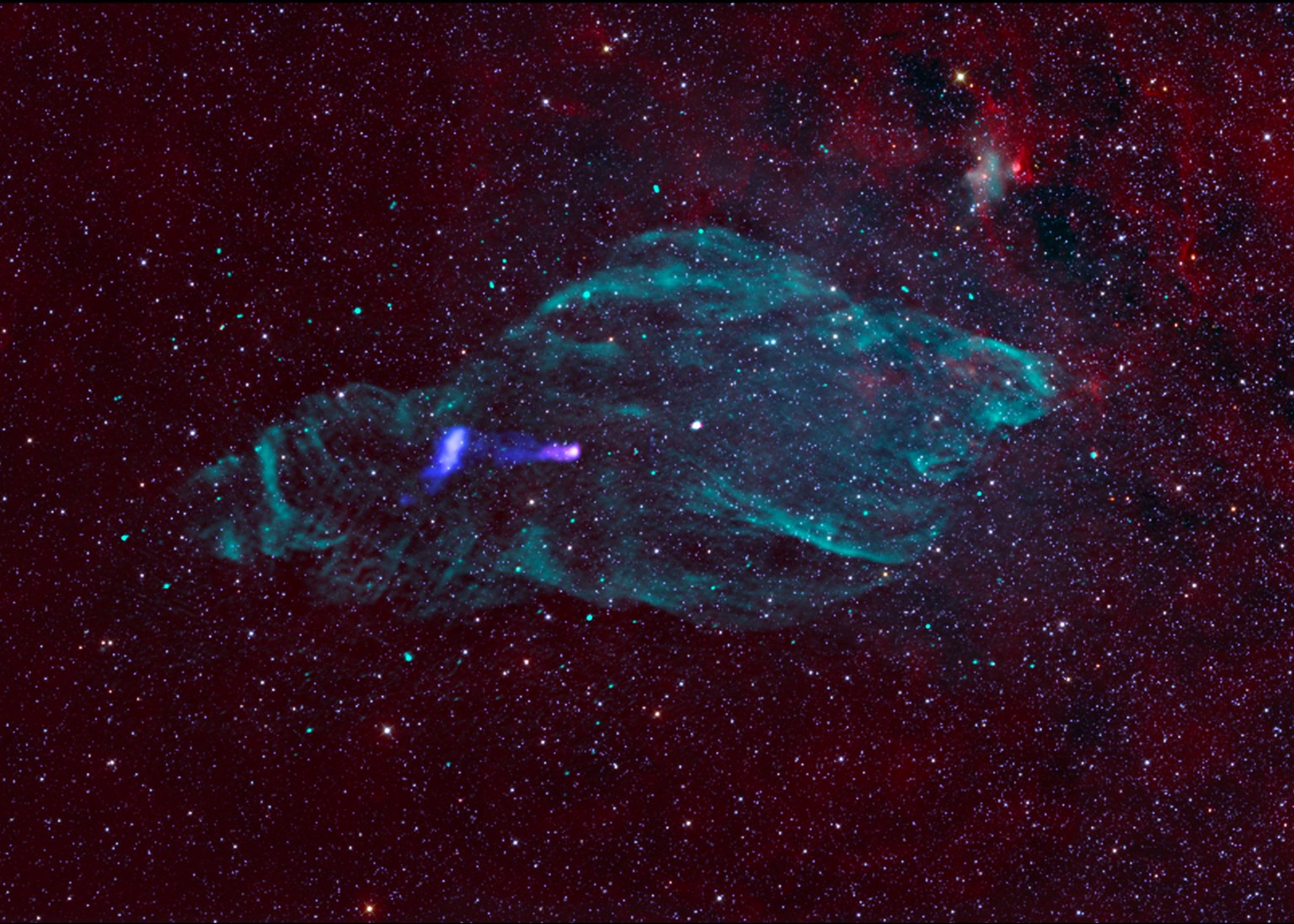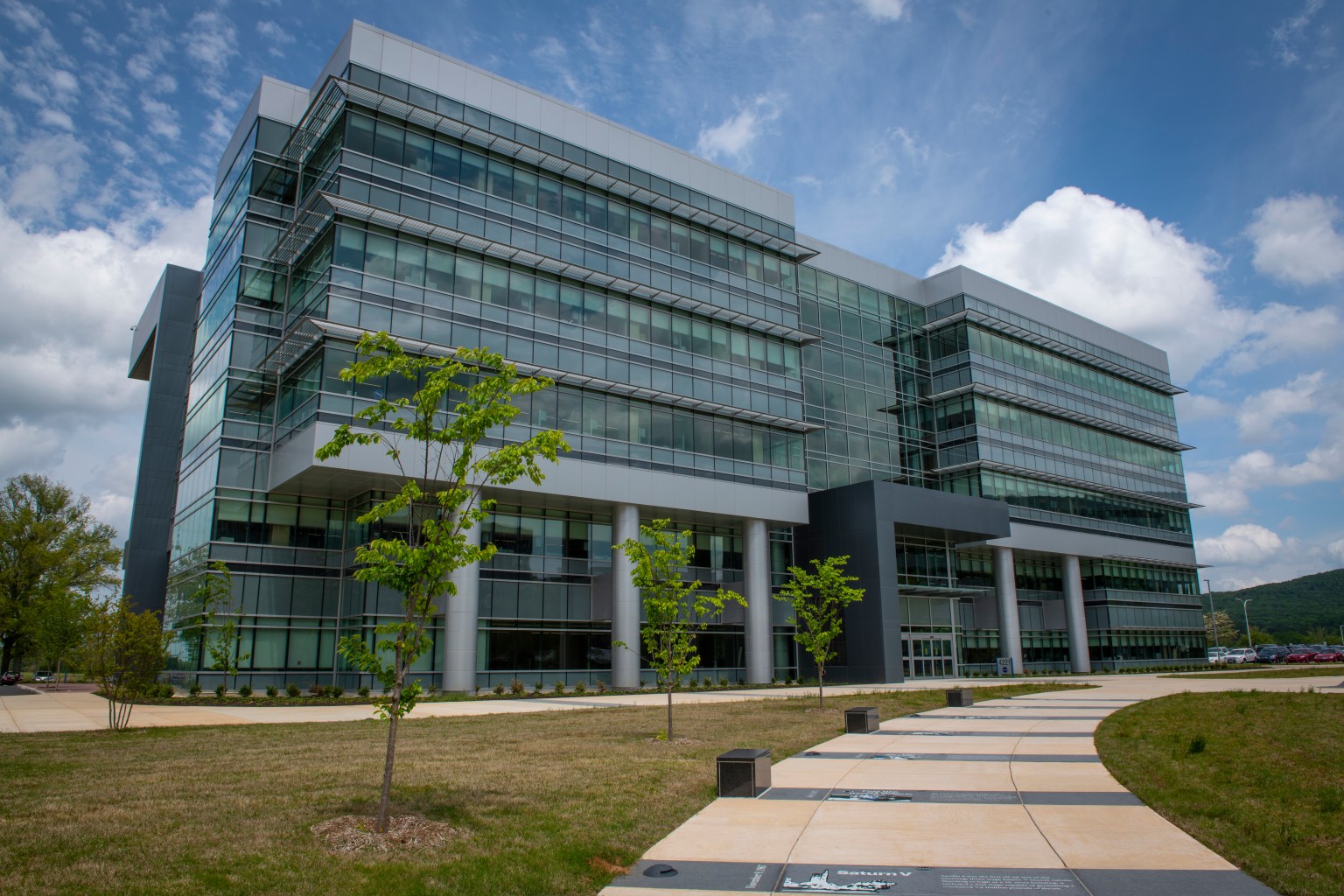By Wayne Smith
Mark Richards grew up in the shadow of NASA’s Marshall Space Flight Center, with his father’s work as a contractor for the agency during the Apollo program bringing the family to Huntsville in 1970.
Pursuing a career at NASA seemed like a natural fit for Richards, deputy director of the Office of Strategic Analysis and Communications (OSAC) at Marshall. He said his parents were the inspiration for him toward earning his degree in electrical engineering at the University of Notre Dame and following his career path with NASA.
“My mother and father are the children of a railroad worker and a steel mill worker,” Richards said. “They were also both first-generation college graduates. Through my parents, I learned the value of a formal education along with the ethic of honest work.”
Richards said the work ethic his parents exemplified continues to serve as motivation for him in his role at Marshall.
I enjoy analyzing and understanding how complex systems interact, including the people that are a part of those systems.
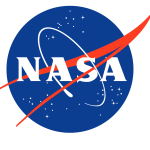
Mark richards
Deputy Director of OSAC at Marshall Space Flight Center
“I enjoy analyzing and understanding how complex systems interact, including the people that are a part of those systems,” he said. “I feel great when I’m able to facilitate a common vision of a problem and provide structure that allows groups and/or individuals to bring their skills together to solve it. I’m wired to be a ‘behind the scenes’ kind of leader, so I feel a sense of accomplishment when the team is successful.”
Question: What are your primary responsibilities as deputy director for OSAC?
Richards: In this role, I share leadership responsibility to provide the integrated strategies, structures, processes, and communications that enable Marshall to contribute to NASA’s missions through the application of the center’s core capabilities and assigned agency roles and responsibilities.
Question: What excites you most about the future of human space exploration and your team’s role it?
Richards: Human space exploration offers tremendous benefits to our country and the world. The emerging technologies needed to go beyond cislunar space, the cooperation needed to build the systems to get there, and the scientific discoveries that will be made are wrapped together in a visible and inspirational campaign that can be shared. In OSAC, we integrate efforts that cross many of the organizations and functions that Marshall contributes to human exploration programs and projects. Through our matrixed communications and STEM (science, technology, engineering, and math)-related organizations, we share our plans and accomplishments with the Marshall community and the public while we inspire the next generation.
Question: What has been the proudest moment of your career and why?
Richards: At a reception following a Marshall awards ceremony, I had the opportunity to meet the parents of one of my employees who received an award. I was humbled by how warmly they greeted me and surprised by how much they knew about me. From my discussions at work, I knew that this employee had been going through a difficult time in their life, but I had not realized that, over time, I had provided the consistent listening ear and encouragement the team member really needed. Having that employee’s parents thank me for the positive impact I had on their child’s life really brought home how important it is to be empathetic and take care of your people. That exchange left me feeling that I had made a difference as a leader and validated the type of work environment I try to create.
Question: What advice do you have for employees early in their NASA career or those in new leadership roles?
Richards: I feel that having a broad set of skills is as important as having depth in a few disciplines. When you consider the many ways we accomplish our work, experience in fields like Program Planning and Controls (PP&C) or Procurement and Resource Management, are just as valuable as solid technical skills. So, my advice is to take advantage of the formal training and the flexibility we enjoy as NASA employees. A detail assignment outside your current job is a great way to gain new skills, experience, and exposure. Finally, don’t be afraid to take on a new role when you get too comfortable with what you are doing. It’s the only way you continue to grow.
Question: What do you enjoy doing with your time while away from work?
Richards: I’ve always enjoyed staying active and learning. I play ice hockey in the local adult leagues a couple nights a week. I enjoy reading, primarily history, biographies, and psychology. I play a little guitar. Over the past few years, I’ve put a lot of time and effort into becoming a private pilot, and I’m currently finishing my instrument rating.
Smith, a Media Fusion employee and the Marshall Star editor, supports Marshall’s Office of Strategic Analysis & Communications.





